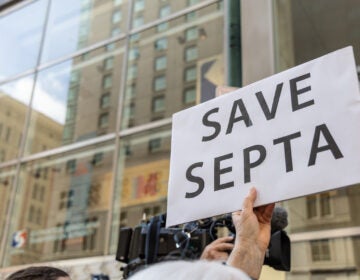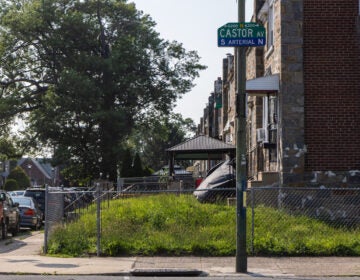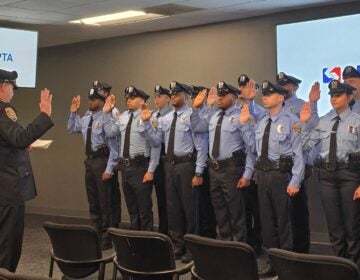SEPTA awards $129.5 million contract to build new fare system

SEPTA took a step into the 21st century Thursday, with its board approving a contract of up to $129.5 million to build a new fare collection system.
The award went to ACS Transport Solutions Group, a Maryland-based division of Xerox Corp., which was competing for the contract along with Scheidt and Bachmann USA Inc. and Cubic Transportation Systems Inc.
If all goes according to plan, SEPTA riders could be seeing the new fare system replacing tokens and tickets by the end of 2013.
The company has the contract to manage this region’s EZ Pass system.
Rollout will begin on SEPTA’s buses, trolleys and subways and expand to regional rail, with a pilot program set up on regional rail to test implementation of the system.
SEPTA aims at being the first legacy transit system to establish a multimodal fare collection system that works seamlessly between its railroad and other modes.
Riders will be able to pay using either a contactless credit card or other wireless device — like a key fob or cell phone — or pay a small fee to use a SEPTA-branded card.
These accounts will be replenishable in the same way, said ACS vice president Marc D. Gordon, who called the three-year time frame “reasonable, but aggressive.”
ACS represented “the best value for SEPTA,” general manager Joe Casey told the board before the vote. It was the lowest bidder, and SEPTA officials said its work on a contactless fare card pilot program between New York and New Jersey transit agencies was a key selling point.
SEPTA project chief John McGee said later that this pilot program provided the company with invaluable experience on implementing a multi-modal fare card system.
“This is their top project,” Casey said at a press conference after the vote, adding that ACS “put together an A team.”
ACS’ project manager was responsible for implementing the MTA’s Metrocard system on New York City’s buses and subways.
SEPTA will also have an option to purchase $83 million worth of additional services the second through fifth year after the system is installed, as well as another $91 million worth of services for years six through 10.
The project will be divided into three phases, with ACS spending the first part of the three-year installation installing an extensive back-end system that will allow riders to establish EZ Pass-like accounts for transit travel.
McGee told the SEPTA Board that the money could cover software maintenance and afre collection services.
Casey said that the advent of a contactless payment system, dubbed new payment technologies by SEPTA, should provide SEPTA with enough efficiencies to pay for the $175 million loan that is funding the installation of the system.
He said that SEPTA will discontinue the use of ticket agents outside of the Center City regional rail stations to save money.
Additionally, Casey said that SEPTA had begun discussions with its unions to alter the job descriptions for cashiers at subway stations. SEPTA wants them out of their booths to actively assist riders with purchases and to answer questions.
In a sense, the awarding of the contract represents the end of the beginning for the smart card program.
Key policy decisions remain on how the regional rail system will function.
A working group representing the counties SEPTA serves and other stakeholders still has to decide on a new fare zone structure.
And it’s unclear how fares will be collected at stations outside Center City. Conductors will be armed with on-board fare collection devices, and some regional rail stations will have validators on platforms that riders will need to tag to check in and out of the system.
Previous meetings of these stakeholders settled on a two-way fare collection system and opted against installing ticket vending machines at every station, saying that doing so would be too expensive.
Turnstiles will be installed at Center City regional rail stations.
That met with opposition from the Delaware Valley Association of Rail Passengers, whose president, Tony DeSantis, asked the SEPTA Board to restructure the smart card contract.
He wants SEPTA to proceed with installation of the new system on buses, subways and trolleys but only purchase hand-held collection devices and wants SEPTA to further study its options.
“We continue to believe that a turnstile and tag-off system will be a great inconvenience to riders,” he said.
Contact the reporter at acampis@planphilly.com
WHYY is your source for fact-based, in-depth journalism and information. As a nonprofit organization, we rely on financial support from readers like you. Please give today.






